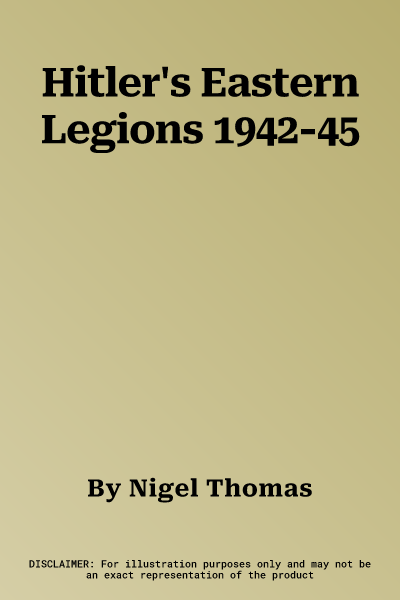This illustrated study details the organization, battle orders, combat
history, uniforms, and insignia of the World War II units recruited by
Nazi Germany from ethnic minorities in the USSR.
Between 1941-45, the Germans recruited around 175,000 men from a number
of minorities in the USSR, distinguishing between Turkomans
(predominantly Muslims) and Caucasians (predominantly Orthodox
Christians). Of these, many formed rear-area auxiliary units, but at
least 55,000 were combat troops. The first recruits formed two
battalions in the 444th Security Division raised as early as November
1941; during 1942--43 seven legions were formed, each of several
battalions, eventually totaling some 53 battalions (equivalent to about
6 full divisions). However, with one exception (162nd Turkoman
Division), they were not deployed as whole formations; after training in
Poland, individual battalions were posted to fill out German regiments
in the front lines, at first in Army Group South but later in all three
Army Groups fighting on the Eastern Front. Units were also sent to
Yugoslavia, Italy, and the Western Front.
This fully illustrated history of the Eastern legions details the
organization, battle orders, combat history, uniforms, and insignia of
these unique units, combining contemporary photographs and full-color
illustrations with expert research from military historian Dr Nigel
Thomas.

